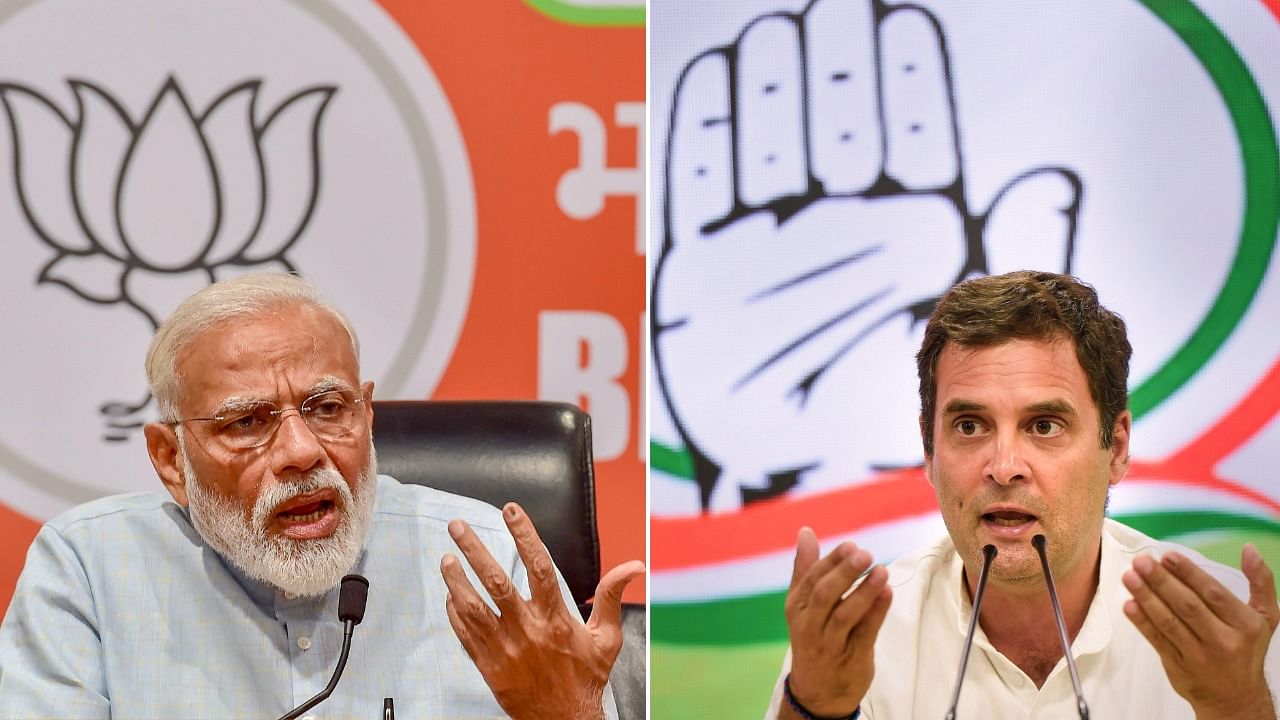
Amid protests against the Centre's Agnipath scheme, Congress leader Rahul Gandhi on Thursday urged Prime Minister Narendra Modi to listen to the voice of unemployed youths and don't take 'agnipareeksha (trial by fire)' of their patience by making them walk on 'Agnipath'.
Protests against the Centre's 'Agnipath' scheme for hiring jawans on a short-term contractual basis were reported from various parts of the country on Thursday.
"No rank, no pension, no direct recruitment for 2 years, no stable future after four years, no respect shown by the government for the army," Gandhi said in a tweet in Hindi, attacking the Centre over the scheme.
"Listen to the voice of unemployed youths of the country, don't take 'agnipareeksha' of their patience by making them walk on 'Agnipath', Mr. prime minister," the former Congress chief said.
Attacking the government over the 'Agnipath' scheme, Gandhi had warned on Wednesday that it will reduce the operational effectiveness of the armed forces whose dignity and valour must not be compromised.
Congress general secretary Priyanka Gandhi Vadra had also hit out at the government and asked why it was making recruitment in the army its "laboratory".
The government unveiled "Agnipath" on Tuesday -- calling it a "transformative" scheme-- for the recruitment of soldiers in the Army, Navy and the Air Force, largely on a four-year short-term contractual basis, in a major overhaul of the decades-old selection process to bring in fitter and younger troops to deal with future security challenges facing the nation.
Under the scheme, around 46,000 soldiers will be recruited this year between the ages of 17-and-a-half years and 21 years into the three services, the Defence ministry said.
The recruitment will be based on an "all India, all-class" basis that is set to change the composition of several regiments that recruit youths from specific regions as well as castes such as Rajputs, Jats and Sikhs.
After the completion of the four-year tenure of the recruits, the scheme provides for retaining 25 per cent of each specific batch for regular service, based on organisational requirements and policies promulgated by the armed forces from time to time.